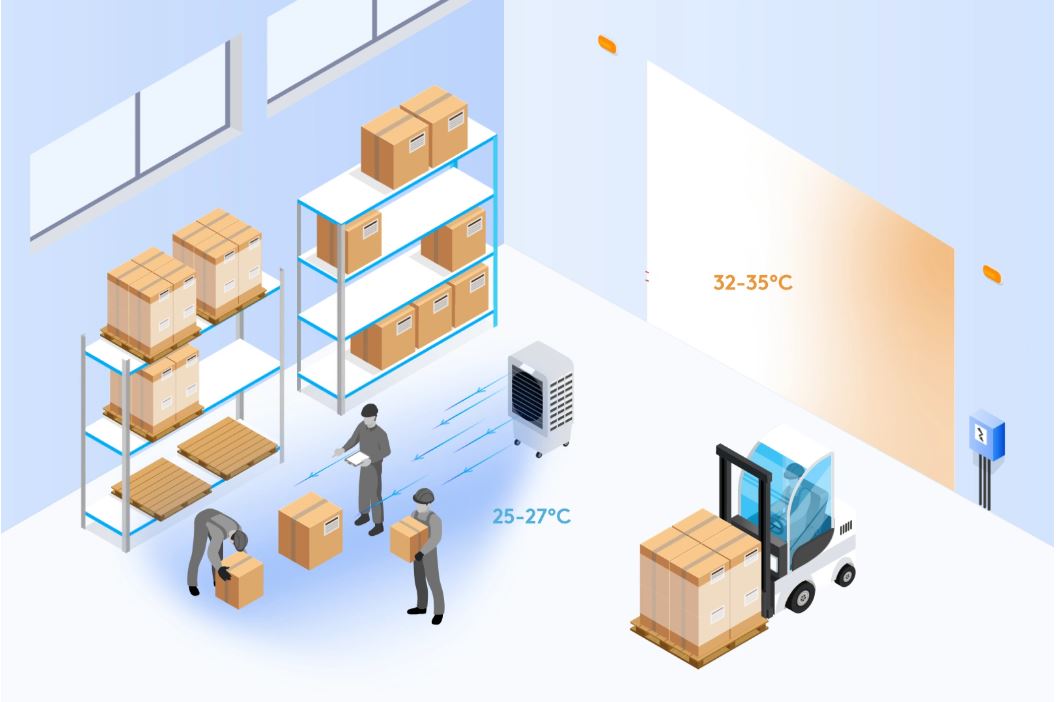
Heat stress and productivity.
According to a new report by the International Labour Organization (ILO), by 2030, the increase in heat stress resulting from global warming will cause productivity losses equivalent to 80 million full-time jobs globally.
Heat stress refers to excessive heat received by the human body beyond what it can tolerate without suffering physiological harm, usually occurring at temperatures above 35°C. Excess heat during work poses a health risk and limits the functions and physical abilities of workers, thereby affecting productivity. In extreme cases, it can even lead to heatstroke, which can be fatal.
Lowering risks with evaporative coolers.
The employer is therefore a key figure in assessing risks and taking appropriate actions in the workplace to ensure that workers can cope with high temperatures and continue to perform their duties. Art-Eco, through evaporative cooling, can transform excessive heat into fresh and humidified air, contributing to achieving a state of well-being for all operators.
Thermal comfort and coolers, a perfect combination.
Thermal comfort, i.e., the state of complete satisfaction with the environment itself, is an essential and priority condition for achieving total well-being. This optimal condition occurs only if environmental parameters such as temperature, relative humidity, and air velocity are appropriately adjusted. All of these parameters can be controlled through our evaporative coolers.
Ventilation can influence microclimatic parameters and plays an important role in the human body’s thermoregulation process, ensuring situations of environmental comfort. Microclimatic well-being and environmental comfort refer to the environmental condition in which indoor air is perceived as optimal by most occupants, both in terms of physical properties (temperature, humidity, ventilation) and chemical properties (clean or fresh air).

